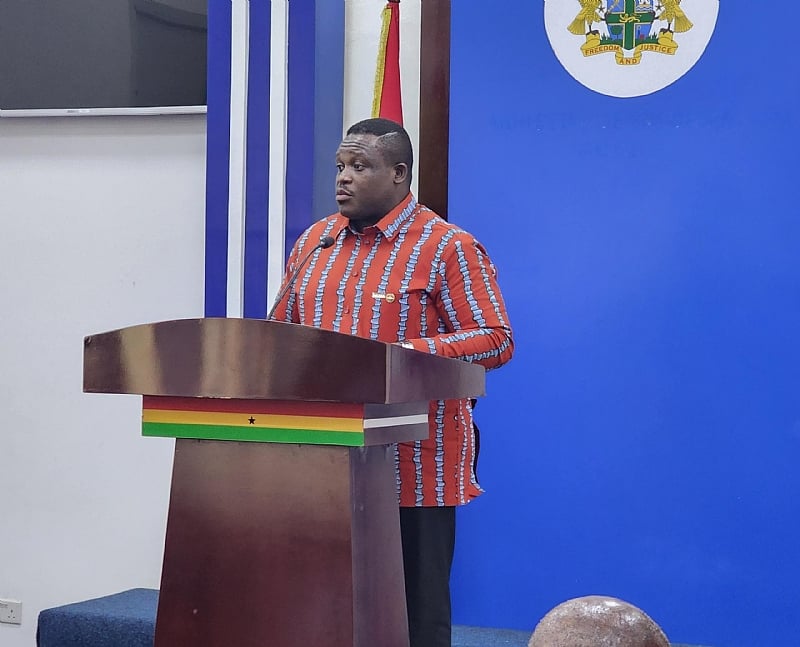Ghana’s Minister for Communication, Digital Technology and Innovations, Sam George, has unveiled a comprehensive digital transformation strategy aimed at propelling the nation into a technologically advanced future. This ambitious plan encompasses a range of initiatives, from fostering artificial intelligence capabilities to empowering the youth with digital skills, modernizing SIM registration processes, and bolstering critical infrastructure. The overarching goal is to create a robust, inclusive, and globally competitive digital ecosystem within Ghana.
Central to this digital revolution is a strategic partnership with MTN Ghana to establish a national Artificial Intelligence (AI) Innovation Centre. This collaboration signifies a significant step towards building a national AI ecosystem. MTN’s commitment to fund the training of 5,000 young Ghanaians in AI and related digital skills over the next 18 months further underscores the importance of developing local talent to drive AI adoption and innovation. This initiative addresses both the infrastructural and human capital needs necessary for Ghana to effectively leverage AI for economic and societal development.
The Minister also provided updates on several large-scale projects, including the Ghana-UAE Innovation Hub, a $1 billion initiative designed to accelerate innovation and digital industry growth. Pre-construction activities are underway, with full-scale construction expected to commence in the first quarter of 2026. This project promises to be a catalyst for the development of a thriving digital industry within Ghana. Further demonstrating the government’s commitment to youth empowerment, the Ministry has directed the University of Ghana to formalize an agreement with the United Nations Development Programme (UNDP) for the Digital Youth Village project, also part of the $1 billion innovation framework. This initiative focuses on providing digital skills training, organizing AI hackathons, and aligning academic curricula with the demands of the future job market, thereby ensuring that Ghana’s youth are equipped to participate in the evolving digital economy.
The modernization of the SIM registration process is another key element of the digital transformation agenda. The current system is being overhauled to create a fully digital, efficient, and user-friendly experience. The new system, scheduled for rollout before the end of the third quarter of 2025, will eliminate the need for physical queues and minimize the time required for registration. The process will involve three phases: biometric data cleanup, controlled new registrations, and business SIM verification with deactivation of non-compliant records. With approximately 80% of the biometric validation process already complete, the transition promises to be seamless for most users. This modernization is crucial not only for convenience but also for enhancing security and combatting fraud within the telecommunications sector.
In conjunction with the SIM registration overhaul, a Central Equipment Identity Register (CEIR) is being deployed to track and block stolen or counterfeit mobile devices. This system will integrate with various databases, including those of telecommunication companies, the Ghana Revenue Service, Customs systems, and the National Communications Authority (NCA). The implementation of the CEIR will significantly improve security and deter the trade in stolen devices, contributing to a safer and more regulated mobile ecosystem within Ghana. The NCA is also actively working on a national spectrum policy to ensure efficient and equitable spectrum allocation to meet the growing demand, further optimizing the utilization of this crucial resource for various communication technologies.
Furthermore, regional integration is being prioritized through bilateral roaming agreements. Agreements with Côte d’Ivoire, Togo, and Benin are already active, enabling Ghanaians to utilize their mobile services at local rates while traveling in these countries. Negotiations with Nigeria are progressing, with implementation anticipated before the end of 2025. These agreements not only benefit consumers but also promote cross-border communication and facilitate regional economic integration. In addition, the completion of Ghana’s National Telecommunications Emergency Plan ensures uninterrupted communication during national crises and disasters, bolstering the nation’s resilience and preparedness. To enhance internet performance, plans are underway to localize internet traffic by establishing more local internet exchange points. Currently, much of Ghana’s internet traffic is routed through exchange points in London and Portugal, resulting in increased latency and costs. The commissioning of a new LINX Point in Accra, along with plans for additional local exchange points, will significantly reduce data travel time and improve internet speeds.
These initiatives, collectively, represent a significant investment in Ghana’s digital future. The government’s emphasis on partnerships, youth empowerment, infrastructure development, and regulatory reform demonstrates a holistic approach to digital transformation. The focus on AI, in particular, positions Ghana to leverage this transformative technology for economic growth and societal advancement. The modernization of SIM registration and the implementation of the CEIR will enhance security and streamline processes within the telecommunications sector. Regional integration efforts and the localization of internet traffic further contribute to a more connected and efficient digital landscape. The government’s commitment to these initiatives signals a clear vision for a digitally driven future for Ghana.














